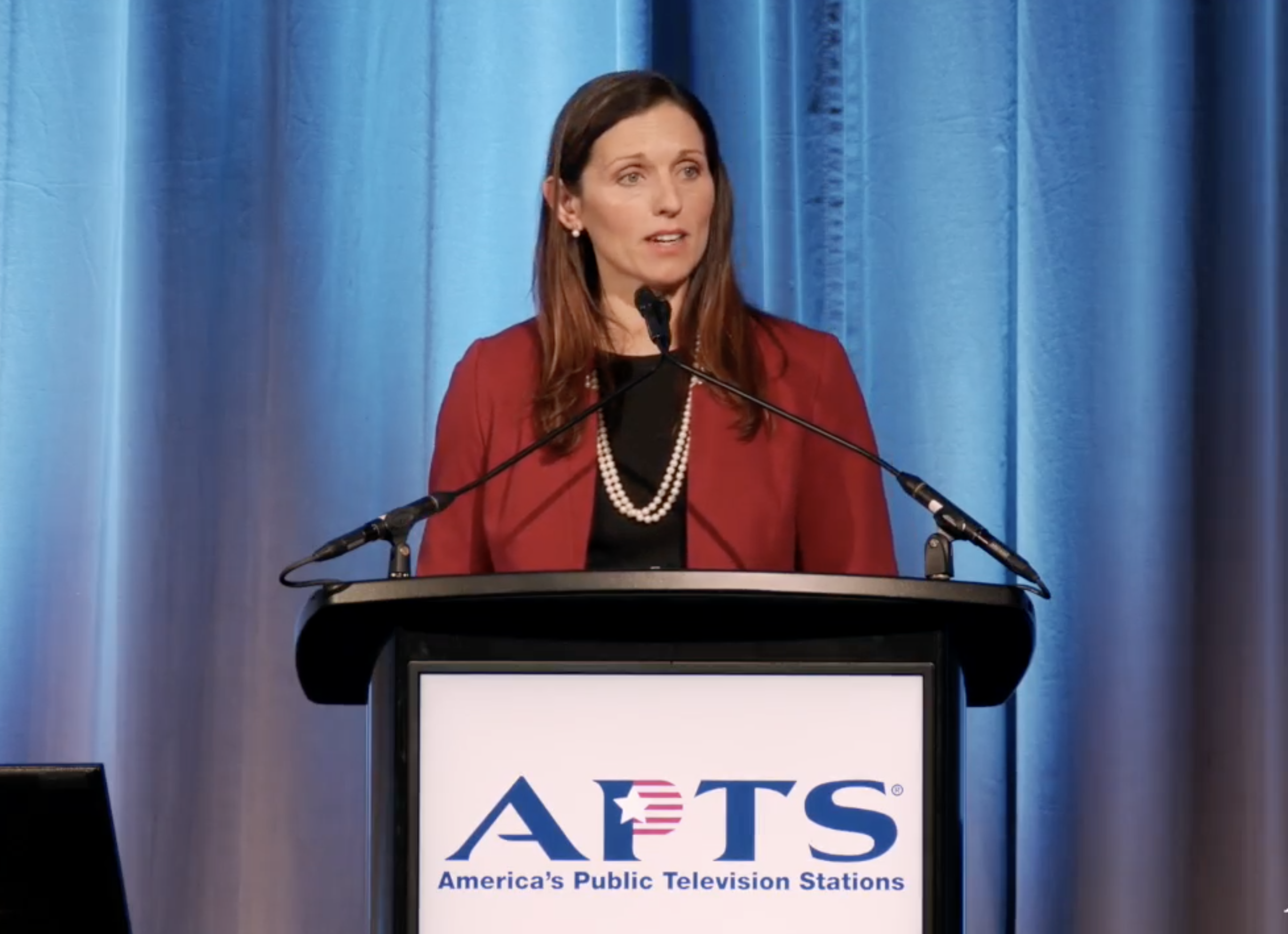
The head of a public TV advocacy group this week warned that threats to cut funding to public broadcasters could impact public safety.
In an address to the annual meeting of America’s Public Television Stations (APTS), the organization's president/CEO Kate Riley recalled the critical role public broadcasters have provided over the past year, citing numerous natural disasters.
“We have seen time and time again how local stations are a lifeline of local information and resources during emergencies,” Riley said. “That was evident during the hurricanes in Florida and the Southeast in the fall and the wildfires in Southern California earlier this year and the floods in Kentucky just last week, among many other examples your role as a local broadcaster some of the last in this country, and the critical role that all public television stations play in enabling PBS WARN [Warning Alert & Response Network] to deliver emergency alerts to our cell phones, makes you an essential public safety service provider.”
“Simply put, cuts to public broadcasting funding significantly jeopardize public safety,” Riley added.
This year’s APTS meeting is Riley’s first as president, succeeding long-time president Patrick Butler last year. And since public TV is no stranger to periodic funding threats, Riley was soberingly realistic when assessing the new political environment on Capitol Hill under the Trump administration.
“We face a new political landscape with significant uncertainty and growing threats, some predictable and many unpredictable,” she said. “Throughout our over 50 year history, the public television system has faced numerous challenges, and we have always overcome them.”
The most immediate concerns revolve around funding. In December, then President-elect Trump called for Congress to eliminate all funding to the Corporation for Public Broadcasting and FCC Chairman Brendan Carr has initiated an investigation into NPR and PBS to determine whether their underwriting announcements violate federal prohibitions against commercial advertising on public broadcasting stations.
The professional video industry's #1 source for news, trends and product and tech information. Sign up below.
Riley emphasized the value of public broadcasting, telling broadcasters that communicating with their Congressional representatives about how educational programs and initiatives impact local communities and help “build the echo chamber of positive information about the valuable services your stations provide and why federal funding is essential to that work.”
“We must say that federal funding is essential to the local services that each one of your station provides,” she added.
Threats to public broadcast funding are not new and nearly every Republican administration and/or Congress has called for curtailing or outright ending public broadcasting with opponents accusing the network of liberal bias. But the fervor threatens to reach a fever pitch this time given the intensity of the current administration towards removing such “biases” from media, in particular one that receives a portion of funding from Congress, which, through the Corporation for Public Broadcasting, provided $525 million in FY 2023.
Riley said public broadcasters have an obligation to help bridge the political divide, which has become more polarizing in recent years.
“We have a responsibility and a long history of reflecting and serving the broad range of thought and experience in each of our communities,” she said. “People share many of the same goals, to be safe and healthy, to have opportunities for their family, but each person's own experiences, perspectives and priorities influence how they determine the best ways to achieve these goals for themselves and their families.
“Even though they share many of those goals, there is a real need for greater understanding of and appreciation for how and why people with similar goals draw different conclusions and take different actions,” Riley added. "Public television is uniquely positioned to reflect and share the broad range of views and experiences in each of our communities in a way that helps foster greater understanding of our neighbors and fellow Americans.”
After she explained the complexities of the looming Congressional budgeting timeline and process, Riley added that “we are tracking this process closely and working to ensure that it does not negatively impact public media.”
Riley concluded her address by citing recent surveys illustrating the support behind public broadcasting. “Seventy-six percent of Americans think that public television is a good investment; 88% of parents think PBS Kids is a safe and trusted place for their kids; 65% of people who voted for President Trump think PBS is either adequately funded or underfunded. And for the 22nd year in a row, public television is America's most trusted institution,” she said.
Tom has covered the broadcast technology market for the past 25 years, including three years handling member communications for the National Association of Broadcasters followed by a year as editor of Video Technology News and DTV Business executive newsletters for Phillips Publishing. In 1999 he launched digitalbroadcasting.com for internet B2B portal Verticalnet. He is also a charter member of the CTA's Academy of Digital TV Pioneers. Since 2001, he has been editor-in-chief of TV Tech (www.tvtech.com), the leading source of news and information on broadcast and related media technology and is a frequent contributor and moderator to the brand’s Tech Leadership events.

